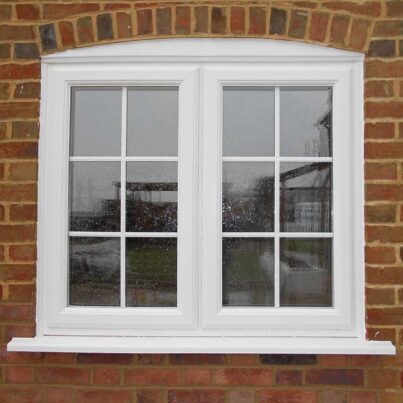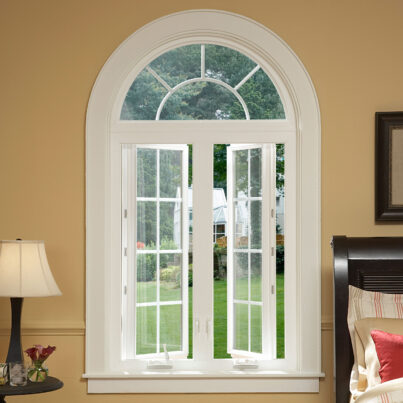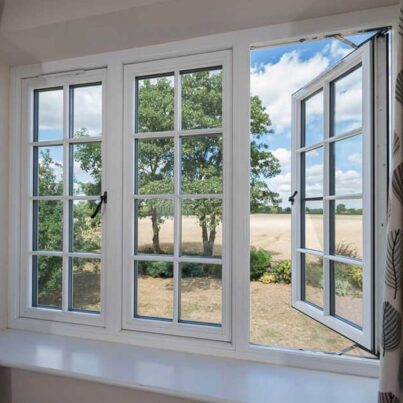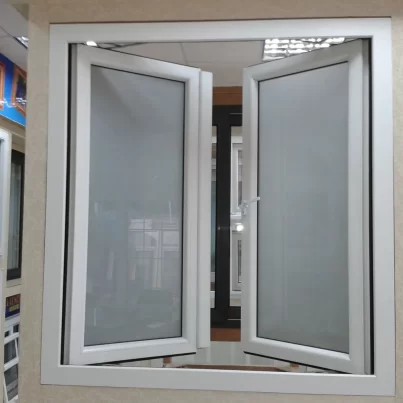Casement windows are a popular choice in residential and commercial buildings due to their versatility and functionality. These windows are hinged at the side and typically open outward using a crank mechanism, allowing for maximum ventilation and airflow. Casement windows are known for their ability to seal tightly when closed, providing excellent energy efficiency and insulation against drafts. They come in various materials such as uPVC, wood, aluminum, or composite, offering options to match different architectural styles and preferences. Casement windows are also favored for their unobstructed views and ease of operation, making them a practical and aesthetically pleasing choice for any space. Whether used individually or combined into larger window configurations, casement windows enhance both the interior comfort and exterior appearance of a building.
Excellent Ventilation: Casement windows open fully outward, allowing for optimal airflow and ventilation, which can help improve indoor air quality and comfort.
Energy Efficiency: When closed, casement windows create a tight seal against the frame, reducing air leakage and helping to maintain a more consistent indoor temperature. This can lead to lower heating and cooling costs.
Unobstructed Views: Casement windows offer expansive views of the outdoors since they have no dividing rails or muntins obstructing the glass, providing a clear and picturesque view.
Enhanced Security: These windows typically come with multiple locking points along the frame, offering enhanced security against intruders compared to other window types.
Aesthetic Appeal: Casement windows are available in various styles, materials, and finishes, allowing them to complement different architectural designs and enhance the overall curb appeal of a home or building.
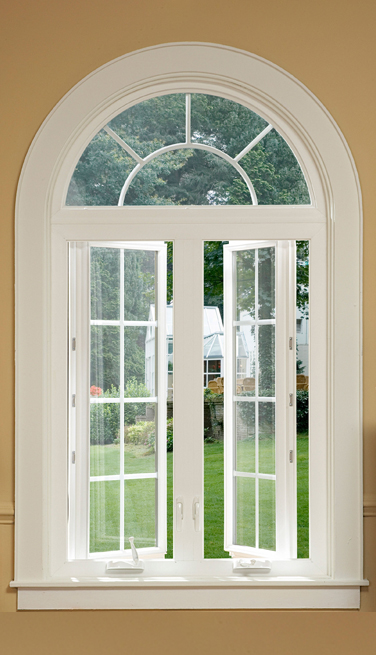
1) Are uPVC casement windows energy efficient?
Yes, uPVC casement windows are highly energy efficient. The uPVC material itself has excellent thermal insulation properties, which helps to prevent heat loss during colder months and heat gain during warmer months. When properly installed with quality seals and double or triple glazing, uPVC casement windows can significantly reduce energy bills by improving overall home insulation.
2) How durable are uPVC casement windows?
uPVC casement windows are known for their durability and longevity. uPVC is a robust material that is resistant to rotting, rust, and corrosion. It does not warp or deteriorate over time, even in harsh weather conditions. Modern uPVC windows are also treated to resist UV radiation, ensuring they maintain their color and structural integrity for many years with minimal maintenance.
3) Can uPVC casement windows be customized to match my home's style?
Yes, uPVC casement windows offer a range of customization options to complement your home’s aesthetics. They are available in various colors, finishes, and sizes to suit different architectural styles and personal preferences. Additionally, you can choose from different glass types, decorative grilles, and hardware options to create a bespoke look that enhances the curb appeal of your home.
